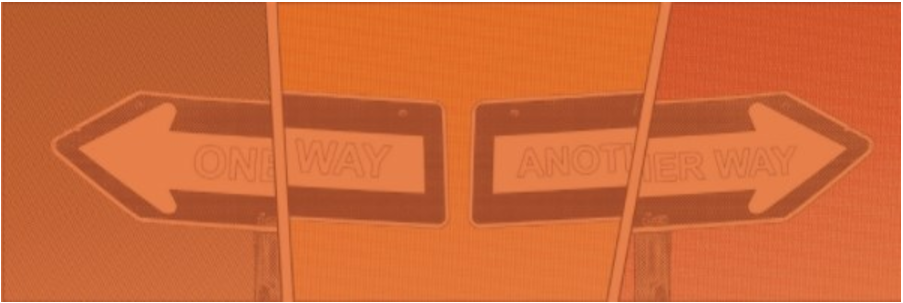
Nov 22, 2016 The New Disruptors
By Cindy Wilson, Mattingly Messina

Meet the New Disruptors: Social Innovators.
As a company whose mission is to do good work that matters, we’re always searching for ways to achieve and maintain a lasting impact in the worlds of both social innovation and corporate social responsibility. As event producers for Fortune 500 companies, our work affords us access to a dynamic roster of industry experts and innovators, and Deloitte has shown itself to be a leader.
Deloitte has been analyzing social impact practices and revealing the persuasive ways in which they can transform entire industries. Their Social Impact Consulting practice released a detailed report analyzing every Global Fortune 500 Company’s status as it relates to social impact. Intrigued by their work, we began to see the ways in which social impact strategies were disrupting entire business sectors. We’d like to add why we’re excited.
In their full report, Deloitte uses a variety of metrics to analyze every company’s relation to social impact and the types of practices they implement. From their findings, they were able to formulate four distinct corporate archetypes that each company could fall into. The first three archetypes highlight the increasing scale and inclusion of social impact practices in a company’s strategy, vision, and execution; they range from essentially doing the bare minimum to being a proactive, sustainable, forward-thinking, and inclusive corporate model. The top archetype, Deloitte’s Social Innovator, is where we trained our focus. According to the report, “social impact is integral to strategy, embedded in processes and across business units” for social innovators, and that the business these companies generate “creates socially conscious goods/services and markets.” Their social mission, succinctly, “is seen as authentic.”
To these companies, social impact goes hand-in-hand with every other facet of their business vision and operations. They’ve made the commitment to have sustainability, traditional CSR tenets, and socially proactive communication serve as their guidelines – and it’s paying off. These types of companies seem to be on the precipice of disrupting industries in a manner similar to Uber, Amazon, and Airbnb – this time, however, there seems to be no limit to the amount of industries that could be changed. Public perception is changing, too: social impact is not tied to an environmental niche, and it isn’t a charitable deduction. It is a pervasive business methodology that can be applied to any field.
In their research, Deloitte referenced Fast Company’s list of the world’s 50 most innovative companies in 2016, and noted that over one third of the list fell into their Social Innovator archetype, compared to a mere 3% of those from the Fortune 500 list. A perfect example of the payoff for these companies: they’re becoming recognized as global, innovative leaders, and rightfully so. Those who may believe that social impact strategies are still “opt-in” will soon find that this is a permanent shift. It will be unavoidable.
We should be promoting companies that understand social impact’s true potential, whether they’re following in the footsteps of Warby Parker and actively providing education and resources for local youth, or Everlane and creating fashionable, sustainable outfits that change the way we look at the clothes we wear. Ethical, transparent, and compassionate financial services can also contribute to your bottom line, too; you needn’t look further than the innovative lending practices of Affirm or the ambitious student loan debt relief led by Earnest to see it in action. Social Capital fearlessly proclaims that an increase in both “the GDP and the happiness of the markets in which we operate” is what they truly base their success on – underscoring the growing trend toward reassessing shareholder value and incorporating a variety of metrics to determine the positivity and success of a company. If a few more companies focused intently on the simple happiness of their targeted markets, and saw how interchangeably that happiness related to monetary value, they could be in a different place.
Along with our personal interest in these emerging fields, there’s another compelling reason for Wilsonwest to strive to be a leader in this area: from an event management perspective, this is a space that hasn’t been filled – at least not to our satisfaction. We see ourselves in this space; the integration of social good has been part of our model for many years. As event producers intent on fostering lasting and worthwhile relationships, we’ve been conscious of the effects of corporate social responsibility and have been tasked with facilitating proper social impact practices for a variety of clients. There are event management pitfalls that a company needs to be able to navigate. If done correctly, the result could elevate a client as a true social impact leader.
Recently, we traveled to Durban, South Africa to manage a client sponsorship of the 2016 International AIDS Conference. Our client, an energy company, has been a corporate leader in combatting HIV/AIDS globally for years, and the investment of both their resources and influence has produced real results. The worry with an initiative of this type, normally, is that it’s often viewed as an opportunistic PR move. Large companies can plaster their brand on a variety of initiatives, but it takes commitment, strategy, and long-term investment on an entirely different level to succeed in social impact. Our client knows this. We’ve embraced and supported this strategy as the foundation of our event work, and are proud to contribute to the progress the global community makes each year in combatting HIV/AIDS.
From that same event management perspective, there’s also need for experience in implementing these strategies. Elevating social impact requires communication with both large, corporate clientele and on-the-ground, smaller nonprofits and foundations. You need to know how to converse in both worlds. Relationships remain the primary focus; they hold comprehensive social impact together. At the heart of our work, we design and create the optimum environments to deepen the relationships between corporations and their partners. Social impact, however, goes far beyond charitable giving and strategic partnerships. Within a company, there needs to be a comprehensive strategy of best practices to remain sustainable, promote diversity, reevaluate shareholder and stakeholder priorities, and captivate and retain an audience or customer base. The expertise and experience needs to exist in order for these connections to be made correctly. We’re ready to speak more, write more, and, most importantly, do more to make this space in the event industry what it should be. We’re ready to help these disruptors.
What industries need to be disrupted a little more?
Let’s start with technology and the always-present need for women and young girls to be championed in the fields of computer science and coding. This is the essence of the social in social impact: companies who are fearless in addressing the great societal challenges of our time will benefit, and benefit immensely. Integration, diversity, and inclusion fall under social impact. We must remember this, especially as we increasingly look to companies to provide responses to the difficulties we face.
Social innovators are disruptors
There’s no way around it. They are commanding an ever-increasing portion of the corporate landscape and are changing the rules of engagement for companies – especially companies that target younger generations. From their inception, regardless of industry, social innovators understood that the values of corporate social responsibility, sustainability, and stakeholder consideration were not additions to be later considered, but rather guiding principles that were the driving forces behind the company’s creation. They cannot go away, for the company cannot exist without them. They don’t react to external forces in the social world – they anticipate them and help shape them. In their research, Deloitte concludes that a significantly higher percentage of smaller, high-growth companies fit into this Social Innovator archetype, underscoring the need to embed these principles into the bedrock of a company from the very beginning.
We aren’t public relations consultants, and we don’t yet fit into the mold of a social innovator. We do, however, know how to generate conversation with our clients about whether they want to fit that mold. The takeaway of Deloitte’s work, and ultimately our efforts, is this: Know where you fit. Know your strategy. Be mindful, and elevate yourselves. Be proactive in the face of social change, and ask yourselves where you want to go.
The nature of disruption is changing, and companies that champion social impact from their very inception will be the ones who set the terms of their industries. We’re ready to move forward and excited about learning alongside our clients and disrupting our industry in the process.

Sorry, the comment form is closed at this time.